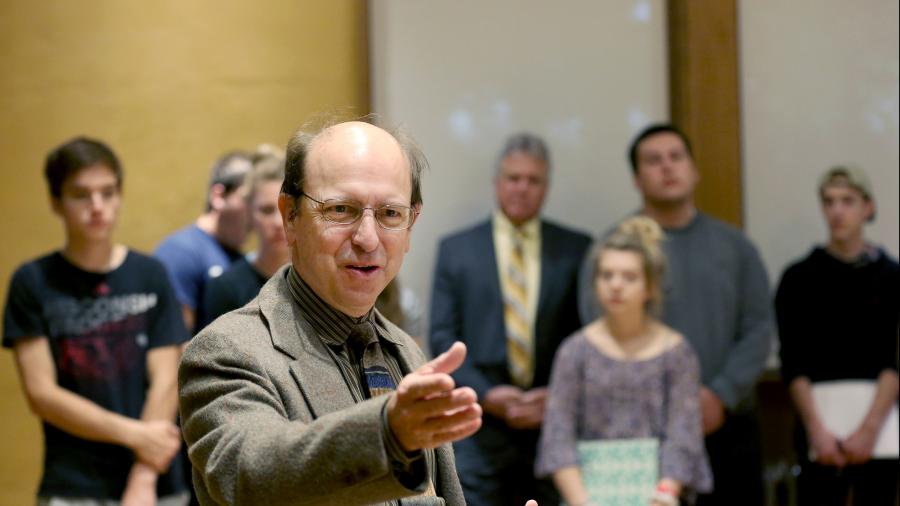
What should the United States do about an influx of immigrants, some from places that are deemed less desirable than others? How is the influx affecting our economy? Our society?
Although those questions could apply to immigration issues today in the U.S., actually they were taken up more than 100 years ago by the Dillingham Commission under President Theodore Roosevelt.
Historian Robert Zeidel, an associate dean at University of Wisconsin-Stout, is well aware of the immigration parallels between the early 20th century and early 21st century. He wrote a book about the issue, “Immigrants, Progressives and Exclusion Politics: The Dillingham Commission, 1900-1927,” published in 2004 and recently was a guest on a BBC radio talk show about the topic.
What can the U.S. learn today from the Dillingham Commission?
 “The commission tried to approach immigration in an objective manner and to rise above the emotional language that dominated much of the debate,” Zeidel said.
“The commission tried to approach immigration in an objective manner and to rise above the emotional language that dominated much of the debate,” Zeidel said.
The Dillingham Commission’s recommendations, based on a 41-volume report published in 1911, ultimately were “hijacked” by politicians and resulted in little valuable progress on the issue, only literacy tests and quotas for immigrants that were discriminatory and unfair, Zeidel said.
If such a commission were convened today, Zeidel wouldn’t expect much to change either. “In all honesty, in the current political climate, we’re more likely to continue with the very subjective, shrill debates that we’re having now.
“We’re falling right back into the emotion of it — the porous border flooding the nation with undesirables, build a wall, deport them all, send the National Guard to protect the southern border,” he said.
Immigration issues in 1907 were somewhat different compared with today, said Zeidel, who has a Ph.D. in American history and a master’s in history from Marquette University. Most immigrants 100 years ago were legal; the hot-button issues today surround illegal immigration.
In 1907, most immigrants also were from Europe. The call for limiting immigration arose when more southern and eastern European immigrants, considered by some to be less desirable than northern and western Europeans, began arriving in larger numbers — similar to the call by President Trump to limit immigration from Mexico and Latin America.
“There was a lot of concern (eastern Europeans) were having a decidedly adverse effect on the United States,” Zeidel said in the BBC interview, which aired July 18 on the 5Live show “Up All Night” hosted by Rhod Sharp.
President Roosevelt was “an enthusiastic Americanizer,” said Zeidel, who teaches a class at UW-Stout on U.S. immigration history.
The Atlantic, in an article written earlier this year by David A. Graham, said, "The early 20th century Dillingham Commission, which was convened by Congress, concluded that immigration from certain regions was dangerous to American culture and paved the way for national immigration quotas."
Zeidel also wrote an article about the commission that was published recently on the website What it Means to be an American. The website is hosted by the Smithsonian Institution.
Immigration levels today compared with the early 1900s are roughly similar, but as a percentage of the U.S. population they are smaller, he said.
“Today’s immigrants truly are coming from around the world, from South Africa, Asia, Latin America. That’s one of the ways in which the debate is maybe more complex and changing and maybe more difficult for some. A lot of today’s immigrants don’t look like the typical white American,” Zeidel said.
Zeidel would like to see an immigration debate that is based on facts. “Let’s have a discussion that’s void of emotion,” he said.
###
Photo
Bob Zeidel







